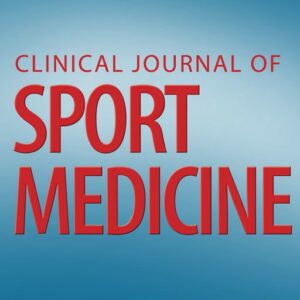Objective: This review provides an update on sport-related concussion (SRC) in ice hockey and makes a case for changes in clinical concussion evaluation. Standard practice should require that concussions be objectively diagnosed and provide quantitative measures of the concussion injury that will serve as a platform for future evidence-based treatment.
Methods: The literature was surveyed to address several concussion-related topics: research in ice hockey-related head trauma, current subjective diagnosis, promising components of an objective diagnosis, and current and potential treatments.
Main Results: Sport-related head trauma has marked physiologic, pathologic, and psychological consequences for athletes. Although animal models have been used to simulate head trauma for pharmacologic testing, the current diagnosis and subsequent treatment in athletes still rely on an athlete’s motivation to report or deny symptoms. Bias-free, objective diagnostic measures are needed to guide quantification of concussion severity and assessment of treatment effects. Most of the knowledge and management guidelines of concussion in ice hockey are generalizable to other contact sports.
Conclusions: There is a need for an objective diagnosis of SRC that will quantify severity, establish a prognosis, and provide effective evidence-based treatment. Potential methods to improve concussion diagnosis by health care providers include a standardized concussion survey, the King–Devick Test, a quantified electroencephalogram and blood analysis for brain cell-specific biomarkers.
Summary Points:
- The King-Devick (K-D) Test, a time-based measure of saccades and other eye movements, detects concussion with high levels of sensitivity (86%) and specificity (90%) at rink-side or point of care.
- Recently, 141 youth hockey players underwent K-D testing before season, after season and immediately after a suspected concussion. Testing was also performed in a subgroup of non-concussed athletes immediately before and after games to determine the impact of fatigue on K-D scores.
- Twenty athletes sustained a concussion, and all 20 had immediate post-concussion K-D testing times, which deviated more than 5 seconds from baseline (average 7.3 s) and all but 2 had worse post-season scores (46.4 s vs 52.4 s). In contrast, 51 non-concussed players assessed before and after a game revealed no significant time change as a result of fatigue. This study indicated that the K-D Test accurately identified real time concussions in youth athletes.
- Players will benefit from having provided preseason and postseason KD testing, as sports medicine providers will have a real-time objective evaluation at point of care to support the diagnosis of concussion.
- To advance the science of concussion, objective measures to diagnose concussion and document the resolution of brain-related changes must be developed. Variations from baseline in 3 objective measures—the KD Test, the QEEG, and neurobiomarkers—may confirm concussion and measure of severity of the brain injury. These potential objective measures will enable promising therapeutic options to be studied for efficacy in concussion management.

